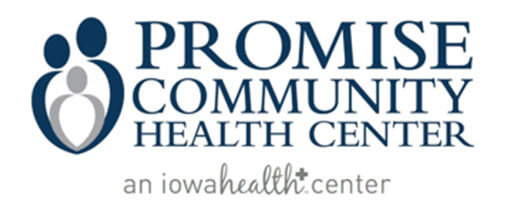
Million Hearts® is a national initiative led by the CDC with a big goal: prevent 1 million heart attacks, strokes, and other cardiovascular events in just five years. The campaign focuses on several key areas—managing blood pressure, quitting smoking, and improving cholesterol.
Recently, Promise was honored as a Hypertension Control Champion by Million Hearts® for helping more than 80% of our patients ages 18–85 with high blood pressure reach healthy levels. We’re proud of this recognition—and it’s a great time to talk about another major player in heart health: cholesterol.

Why is high cholesterol a problem?
Cholesterol isn’t all bad—your body actually needs it. When levels get too high, it causes plaque to build up in the arteries (a condition called atherosclerosis). Over time, this can lead to serious heart problems.
Here’s what happens:
- LDL cholesterol (“bad” cholesterol): Too much LDL sticks to artery walls, narrowing them and slowing blood flow.
- Reduced oxygen supply: Narrow arteries mean less oxygen-rich blood reaches your heart and brain.
- Risk of clots: Plaque can break loose, causing clots that may trigger a heart attack or stroke.
- Strain on the heart: With clogged arteries, your heart works overtime, which can lead to heart failure.
In short: High cholesterol damages arteries, restricts blood flow, and raises your risk of heart attack, stroke, and other serious health problems.
The good news: You can take control
The best part? High cholesterol is manageable.
Here are a few proven ways to protect your heart:
1. Know your numbers
- Get your cholesterol checked regularly—knowledge is power!
2. Make lifestyle changes
Food:
- Add more omega-3 rich foods like salmon, tuna, chia seeds, walnuts, and flaxseed.

- Load up on fiber. Soluble fiber lowers “bad” cholesterol by blocking absorption and forcing your body to use cholesterol in your blood. Good sources include oats, beans, lentils, apples, carrots, and other fruits, veggies, and whole grains.
- Cut back on foods high in saturated fats and LDL-raising fats, such as fatty meats, pork belly, animal skin, and corn oil.
Movement:
- Aim for 150 minutes of light exercise or 75 minutes of vigorous activity each week. It doesn’t have to be a marathon—brisk walks, bike rides, swimming, gardening, or mowing the lawn all count as light exercise.
Stop smoking/vaping:
- Quitting isn’t just about your lungs—it helps lower bad cholesterol and boost the good kind. Plus, your risk of heart attack is cut in half after just one smoke-free year!
3. Take medication daily:
- If your provider prescribes cholesterol medication, take it as directed. Consistency prevents plaque buildup and protects your heart.
Bottom Line
High cholesterol can be dangerous—but the good news is, you have the power to change it. With healthy habits, regular check-ups, and medication when needed, you can lower your risk of heart disease and live a healthier life. At Promise, we’re here to help every step of the way.

